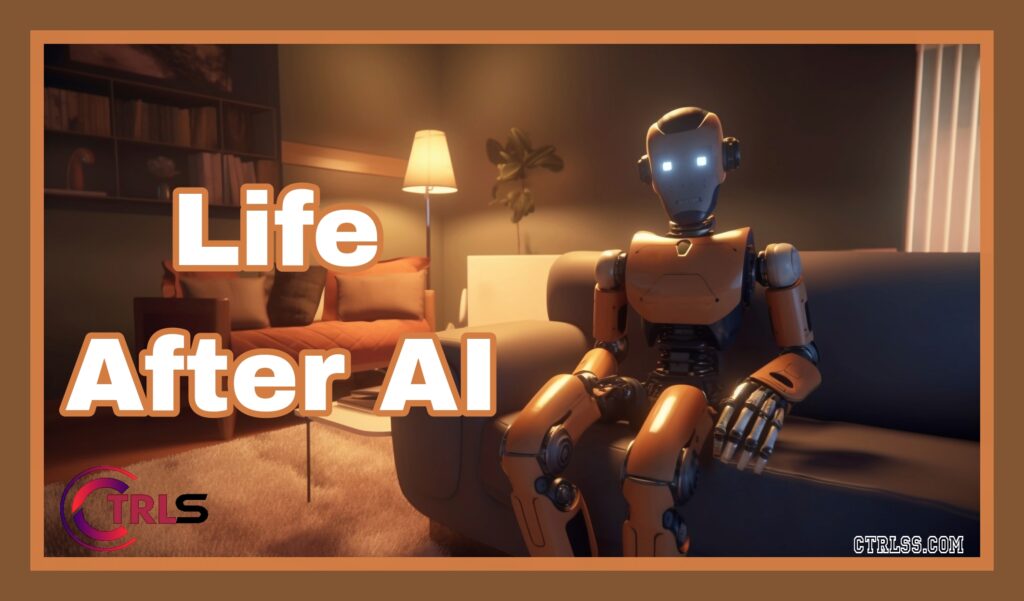Life After Artificial Intelligence : Will AI Replace Humans?
In this day and age, it’s hard to escape the influence of artificial intelligence (AI). From voice assistants to self-riding cars, AI has end up an imperative a part of our lives. But with its rapid advancements, a question arises: Will artificial intelligence replace humans? In this thought-provoking article, we will delve into the topic of life after artificial intelligence and explore the potential impact of AI on our existence.

Life After Artificial Intelligence
Artificial intelligence has made significant strides in recent years, thanks to advancements in machine learning and data processing. AI systems are now capable of performing complex tasks, analyzing vast amounts of data, and making decisions with remarkable accuracy. This has led to increased efficiency and automation in various industries, transforming the way we work and live.
The Fear of Job Displacement
One of the number one worries surrounding AI is the worry of activity displacement. As AI continues to evolve, there is a notion that machines will take over human jobs, leaving many unemployed. While it’s true that AI can automate certain tasks and streamline processes, it’s important to remember that humans possess unique qualities that machines cannot replicate.
The Human Touch
What sets humans apart is our capacity for creativity, empathy, and critical thinking. These qualities allow us to adapt, innovate, and find unconventional solutions to complex problems. While AI can excel in repetitive and data-driven tasks, it lacks the human touch—the ability to understand emotions, provide comfort, and connect with others on a deeper level.
How to Shop Like a Pro with ChatGPT? chatgpt shopping
Collaborating with AI
Rather than viewing AI as a threat, we should embrace it as a powerful tool that can augment our capabilities. AI has the potential to assist us in various domains, such as healthcare, research, and decision-making. By collaborating with AI, we can leverage its computational power and data analysis capabilities while utilizing our human ingenuity to guide its actions.
Transforming Industries
AI has the potential to revolutionize industries and create new opportunities. In healthcare, for instance, AI can help diagnose diseases more accurately and efficiently, leading to improved patient outcomes. In transportation, self-driving cars powered by AI can enhance road safety and reduce accidents. These advancements not only benefit society but also open doors to new career paths and areas of expertise.
Ethical Considerations
As AI becomes more sophisticated, we must address the ethical implications associated with its use. Ensuring transparency, fairness, and accountability in AI algorithms is crucial to prevent biases and discriminatory outcomes. It’s essential to establish guidelines and regulations that govern the development and deployment of AI systems, ensuring they align with our societal values and respect individuals’ rights.
Embracing Lifelong Learning
To thrive in a world influenced by AI, it’s important to embrace lifelong learning. As AI automates certain tasks, it will create opportunities for humans to engage in more fulfilling and intellectually stimulating work. By continuously acquiring new skills and knowledge, we can adapt to the changing landscape and stay ahead of the curve.
The Future of Work
While AI may reshape the job market, it’s important to note that throughout history, technological advancements have led to the creation of new jobs and industries. As certain tasks become automated, new roles will emerge, requiring uniquely human skills and expertise. The key lies in preparing ourselves for these shifts by fostering a culture of continuous learning and adaptation.
Preserving Human Connection
In our pursuit of technological progress, we must not overlook the importance of human connection. As AI becomes more prevalent, we should strive to maintain meaningful interactions and nurture empathy and compassion. It’s in our hands to ensure that technology serves as a means to enhance our lives, rather than replacing the essence of what makes us human.
Life After Artificial Intelligence
While artificial intelligence has undeniably transformed our world, the notion of AI replacing humans remains a topic of debate. Rather than fearing AI, we should embrace its potential while recognizing the unique qualities that make us human. By collaborating with AI, upholding ethical considerations, and fostering lifelong learning, we can shape a future where humans and AI coexist harmoniously, creating a society that harnesses the best of both worlds.
ChatGPT : Your New Best Friend for Engaging Conversations! 🤖💬
So, as we navigate the ever-evolving landscape of artificial intelligence, let us remember that life after AI is not about humans being replaced, but about humans and AI working together to build a better future.



